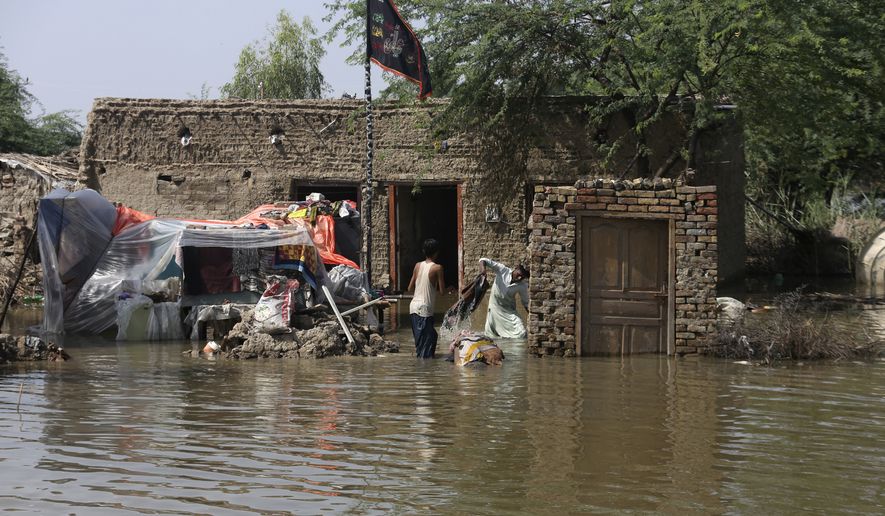The World Health Organization on Wednesday said deadly flooding in Pakistan is damaging the health system and will exacerbate outbreaks of conditions such as malaria, polio and COVID-19.
Heavy monsoon rains that began in mid-July have damaged 888 health facilities in the South Asian country, including 180 that are “completely” damaged, the public health arm of the U.N. said. The wreckage is leaving millions of people without access to health care and medical treatment.
Even before the flooding, Pakistan recorded more than 4,500 measles cases and 15 instances of wild polio. The rains and flooding have disrupted the polio vaccination campaign.
“WHO is working with health authorities to respond quickly and effectively on the ground. Our key priorities now are to ensure rapid access to essential health services to the flood-affected population strengthen and expand disease surveillance, outbreak prevention and control, and ensure robust health cluster coordination,” said Dr. Palitha Mahipala, the WHO representative in Pakistan.
The massive flooding in Pakistan has impacted about 33 million people and displaced more than 160,000 people. WHO estimates that over 1,000 people have been killed and 1,500 injured from the flooding, which has produced alarming images of neighborhoods underwater and people scrambling to safety or salvaging belongings.
“According to a preliminary assessment conducted by WHO and humanitarian partners, the current level of devastation is much more severe than that caused by floods in Pakistan in previous years, including those that devastated the country in 2010,” said Dr. Ahmed Al-Mandhari, WHO’s regional director for the Eastern Mediterranean. “WHO has initiated an immediate response to treat the injured, provide life-saving supplies to health facilities, support mobile health teams, and prevent the spread of infectious diseases.”
WHO said it is diverting mobile medical camps, including those in the country to respond to COVID-19, to affected areas to provide clean water and screen for diseases.
The government of Pakistan is leading the response through emergency declarations, control rooms and medical camps at provincial and district levels. It is providing air evacuations for those who need to be relocated and raising awareness about waterborne and vector-borne diseases, plus conditions like COVID-19.
For more information, visit The Washington Times COVID-19 resource page.
• Tom Howell Jr. can be reached at thowell@washingtontimes.com.




Please read our comment policy before commenting.